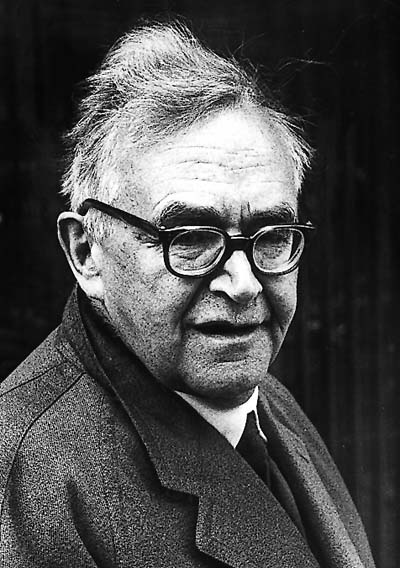 Karl Barth's Church Dogmatics Vol II.2 is the second half-volume of his "Doctrine of God (CD II/2)" and contains Barth's Doctrine of Election. Barth emphasizes his admiration of Calvin's Doctrine of Election, and explains its superiority biblical basis to competing theories of election, but also Barth expresses his great dissatisfaction with concept of absolutum decretum that stands behind Calvin's Double Predestination. Barth appears to be most disgusted by the Synod of Dort for endorsement of absolutum decretum. Most of his rejection of absolutum decretum is based on Barth's belief that it is unloving and makes God a tyrant for condemning people who do not yet exist. I am paraphrasing the first two-hundred pages, and its difficult to extract clear statements from the Dogmatics, so I have most likely misrepresented what Barth is saying. The clearest point however is that Barth rejects absolutum decretum or Absolutism, where God absolute determines everything that ever existed.
Karl Barth's Church Dogmatics Vol II.2 is the second half-volume of his "Doctrine of God (CD II/2)" and contains Barth's Doctrine of Election. Barth emphasizes his admiration of Calvin's Doctrine of Election, and explains its superiority biblical basis to competing theories of election, but also Barth expresses his great dissatisfaction with concept of absolutum decretum that stands behind Calvin's Double Predestination. Barth appears to be most disgusted by the Synod of Dort for endorsement of absolutum decretum. Most of his rejection of absolutum decretum is based on Barth's belief that it is unloving and makes God a tyrant for condemning people who do not yet exist. I am paraphrasing the first two-hundred pages, and its difficult to extract clear statements from the Dogmatics, so I have most likely misrepresented what Barth is saying. The clearest point however is that Barth rejects absolutum decretum or Absolutism, where God absolute determines everything that ever existed.
Barth's rejection of absolutum decretum that begins at the end of the Church Dogmatics Vol II.1, appears to be the turning point from orthodoxy to ambiguous orthodoxy. Barth claims that the biblical passages do support Double Predestination, but the objects of election are not individuals but rather the person of Jesus Christ. It is Jesus who is doubly elected, and not individuals, and Jesus is both elected to acceptance and rejection at the same time. And therefore he dodges the absolutum decretum by pointing it to Christ alone, and then denies that there is a specific election for any other individuals.
Some of this is the double-speak of Molinism, and I overlooked any polemic proving that it was any different than Arminianism. Somehow, Barth believes that a freewill exists on top of middle knowledge (scientia media), and this is his escape from absolutum decretum (as I explained in my previous post.)
Barth is right that we should not think of election in terms of individuals independent of Christ, because our election is "in Him". Barth continually returns to the "in Him" of Ephesians 1:4, to point our election as being a part of Christ's election. We should never think that our election is independant of Christ, or that Christ's salvation of the elect is secondary to absolutum decretum. (Stressing Christ's election to the point of obscuring the election of anything apart from Christ reduces election to meaninglessness.)
Ephesians 1:4 just as He chose us in Him before the foundation of the world, that we would be holy and blameless before Him. In love"ΠΡΟΣ ΕΦΕΣΙΟΥΣ 1:4 καθὼς ἐξελέξατο ἡμᾶς ἐν αὐτῷ πρὸ καταβολῆς κόσμου, εἶναι ἡμᾶς ἁγίους καὶ ἀμώμους κατενώπιον αὐτοῦ ἐν ἀγάπῃ,
Barth has an interesting discussion of Supralapsarianism verse Infralapsarianism, in his attempt to prove that absolutum decretum implies that election to reprobation would imply condemning an innocent individual. Barth turns the focus upon Christ, and then quotes verses demonstrating Christ's fellowship with all individuals.
Related: absolutum decretum, CD II/2, Church Dogmatics, Church Dogmatics II/2, Doctrine of God, election, Karl Barth, predestination



Leave a comment